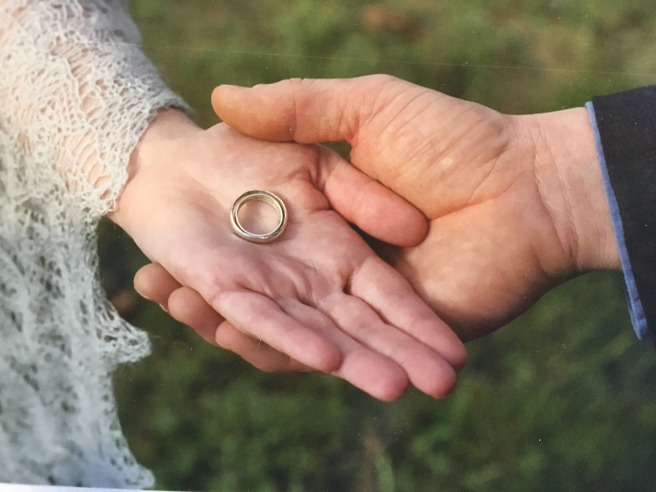
The sky was almost perfectly blue the day my husband and I promised, among other things, that we would always offer each a shoulder to lean on. It was brisk that day, and the last of the autumn leaves were blowing off the trees in the northern reaches of Vermont as we started a new phase in an unlikely relationship that had started at a circus four years earlier. We thought we knew everything about each other, standing there in front of our families in our twenties, making promises for forever. But forever is a long time, and marriage is really a process of getting to know each other over and over again.
Ten years are enough to change a person. A couple of jobs, a couple of kids, and the ebbs and flows of life mean that we are not the same people who stood making those promises years ago. The patterns of our relationship – how we communicate, how we touch, how we express love – have changed over the years as our emotional languages have changed according to internal and external forces. Our bodies hold few mysteries from each other any more, after years of co-existing and intimacy. Such is the way of marriage. But our minds continue to grow and change, leaving our conversations new and fresh, our interactions sometimes challenging if our communication is not working well.
We have grown from lovers to spouses to co-parents, our relationship morphing to accommodate the needs of these roles. Now we face a new phase as my body descends into a chaotic pattern of chronic illness that doctors have not been able to tame. We have added the role of caregiver and patient.
These new roles require a new type of intimacy, a new type of knowing. My husband has become attuned to my body’s signals, and knows when I am about to lose the use of my left side, which usually also means I will lose the ability to speak. He becomes quite literally a shoulder to lean on as he helps me to the nearest seat, sometimes lifting me into it, and has become an expert at communicating with and for me. He knows a severe episode from a mild one, and is able to conduct a basic neurological exam to assess my condition. He’s able, more or less, to read my mind.
Illness has required seismic shifts in our other roles as well. Housework and childcare have become almost entirely my husband’s responsibility, along with grocery shopping and other errands. I help when I can, and organize helpers from our community of friends and family. As any couple with young children will tell you, it is hard to find time to devote to the work of marriage when there is the business of raising children to attend to. That is even harder when there is a chronic illness living in the house.
A good marriage is like a container that changes to contain the life you’re living. It’s made of flexible, strong stuff that can stretch and shrink and not break under stress. But a good marriage also needs care and attention to survive. It’s not easy, but no one ever said it would be.
Beautifully and eloquently put, Allyson! Wow!
LikeLike